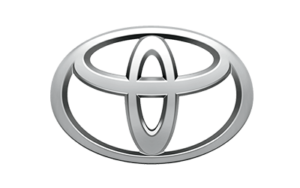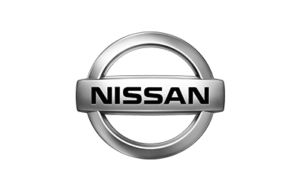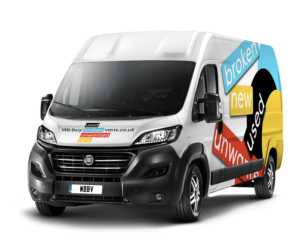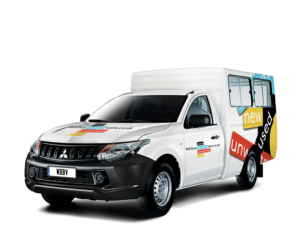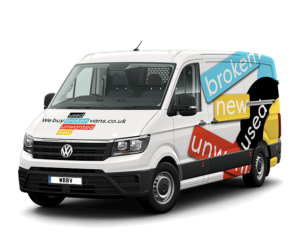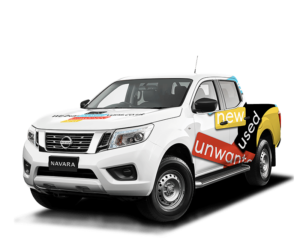When you think of a van, the most obvious image is of a larger, almost box-like vehicle that is used for transporting goods and equipment from one place to another. There are lots of types of vans, all coming in different shapes and sizes to suit all kinds of different needs and situations, from smaller vehicles that aren’t dissimilar from larger cars right through to box vans that can handle much larger loads.
Beyond this, there are other types of vans available, too, and each have their own uses. Some businesses may find a specialised type of van more suitable for their needs than a general vehicle, which is worth keeping in mind.
It’s also worth thinking about the van cost, as some models and types will be more expensive than others – but if the benefits allow you to complete more jobs and make more money in the long run, they could be a worthwhile investment.
Running Different Types Of Vans
With different types of vans available, you should know that each has to be run in a different way. The costs are different, from buying the vehicle to running it – which includes fuel costs, maintenance, repairs, insurance and more. This all has to factor into your thoughts as to which one you should choose.
These costs can mount up, and not taking them into account can mean you quickly find yourself in a situation where you are struggling to keep your business successful. Whether it’s finding work, completing jobs or transporting the goods or equipment you need for each task.
Whether you’re in a business or self employed, work out what running different types of vans will mean, and whether you both need that type of vehicle as well as if it will provide the results you want.
Should You Choose A Car Or Van?
While a van is the first thought many drivers have for a work vehicle where transporting goods or people is required, it’s important to determine if it’s needed in the first place. If your business is young, transporting people more than goods, and only small amounts of goods at that, a car could be a better option as it would mean you don’t need two vehicles taking up space.
However, even if this is the case at the time, if you expect a surge in demand that would require a bigger vehicle, it can be useful to plan for the future where possible. This might mean a bigger car or a van, whether that’s a small model to begin with.
You might find this a cheaper option that delivers similar results for a time, and this can help better establish your work and help you figure out what else is needed – as well as if this venture can be successful.
Is It Cheaper To Insure A Car Or A Van?


Whether it is cheaper to insure a car or a van depends on the vehicles in question. Age, condition, size, usage, and more are all factors that determine how much it will be to insure.
As a general rule, vans tend to be the more expensive option because they are bigger in size, have larger engines and they transport more valuable goods and equipment. This means that a claim involving a van can often be more expensive and that means higher insurance rates.
However, individual factors can change this, so don’t assume that every van is more expensive than any car. With this in mind, you can estimate certain costs and figure out if that is something worth paying versus the returns you’ll receive from running a van. Even if you don’t know the exact model or condition of the vehicle in the end, you can get an idea of what to expect using various online tools.
When Does It Make More Sense To Use A Van?
The vehicle you need for your work depends on what you do!
Delivery drivers, for example, will often need a van to complete their work as they can carry more goods and products with them on every trip. That means less time spent restocking and driving with an empty vehicle, so you can be more productive. What matters most here is planning routes effectively to get the most out of each journey.
You’ll find a lot of tradespeople, builders, painters, carpenters, joiners, and many more, all use vans. This is because they have to transport a lot of supplies and equipment throughout the day, and going back to base to change the loadout between jobs means less jobs that can be taken – which has a direct impact on profit.
These are just two examples, but we recommend you look closely at what you do, how you do it, and what your options are to find the right ones.
Why Choose A Van?
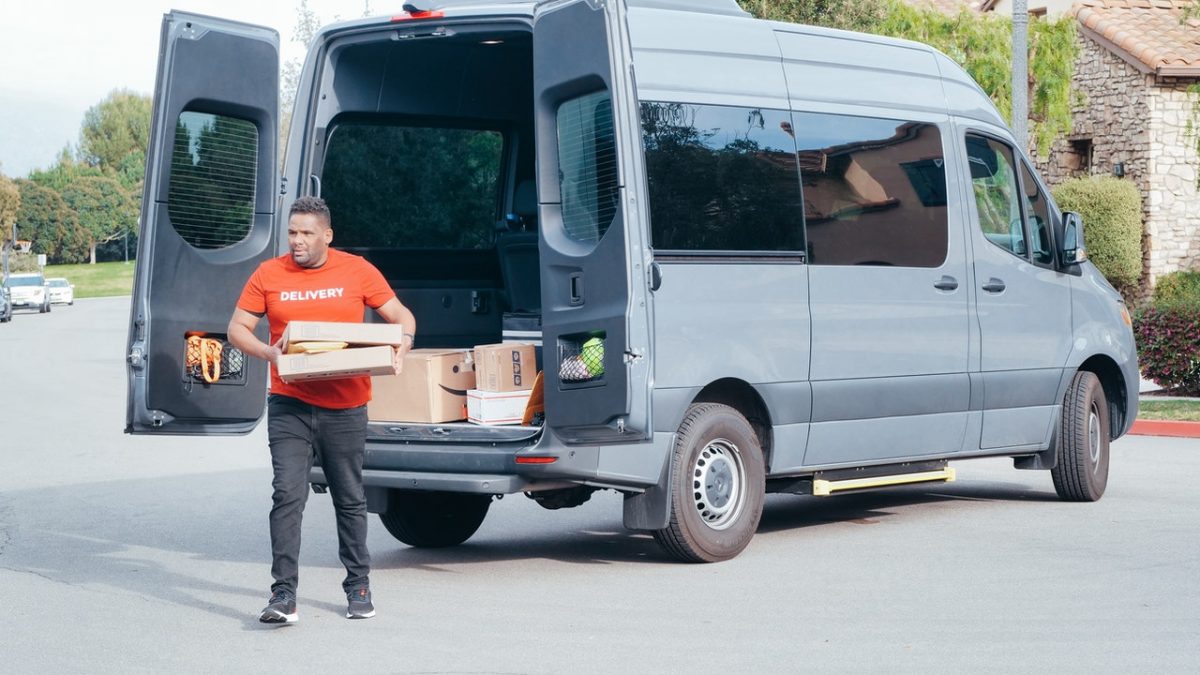

So, why would you choose a van over a car, or a more specialised type of vehicle? It all comes down to what you want to achieve with the vehicle in question. Vans come in all shapes and sizes, offering more transport capacity than a car. You can also find a smaller model perfect for narrow city streets or larger vehicles for longer journeys.
Some delivery drivers, such as food or takeaway meal deliveries, are better suited to using cars as the products aren’t as big as, say, building supplies, tools, or pieces of equipment certain professions need to complete their work.
However, for some people where size matters, allowing you to carry more goods and complete longer journeys, a van can make all the difference, keeping you on the road and working for longer at a time – and that’s a good way to help boost efficiency.
What Can You Use A Van For?
Vans are incredibly versatile vehicles, handling a range of tasks and jobs that cars or more specialised vehicles just aren’t suited for. Transporting goods is an obvious role for vans and their drivers, whether that’s within a town or city, or across regions and countries, delivery jobs are always in demand and the ever increasing ecommerce industry is proof that more and more goods will have to be delivered as time goes on.
Transporting equipment for jobs is another function, and you’ll see many businesses that rent such equipment deliver and collect these tools for customers to use. Tradespeople will also take what they need for a job in their van, which is able to carry more than a car.
Vans can be converted to transport people, too, and converted into campers for the ultimate road trip adventures, so there are plenty of opportunities.
What Size Of Van Should You Choose?
This is probably the most important question to answer when choosing a van for your work. While there are different van types and models to pick from, the size will determine what you can transport and how often you’ll need to resupply or change loadouts.
Plan ahead as best you can, rather than accounting for the current situation alone – or you might find the model you choose ends up being too small to account for growth. This means lost profit and more money spent on replacing the van sooner than you expect.
The cargo you transport can also determine what you need, with medium-sized vans working well for many van drivers, offering the best balance of economy and capacity. That’s not to say larger or smaller vans can’t work as well, if they’re the right choices, but medium-sized vehicles offer the best of both worlds.
Should You Go For A Cherry Picker?
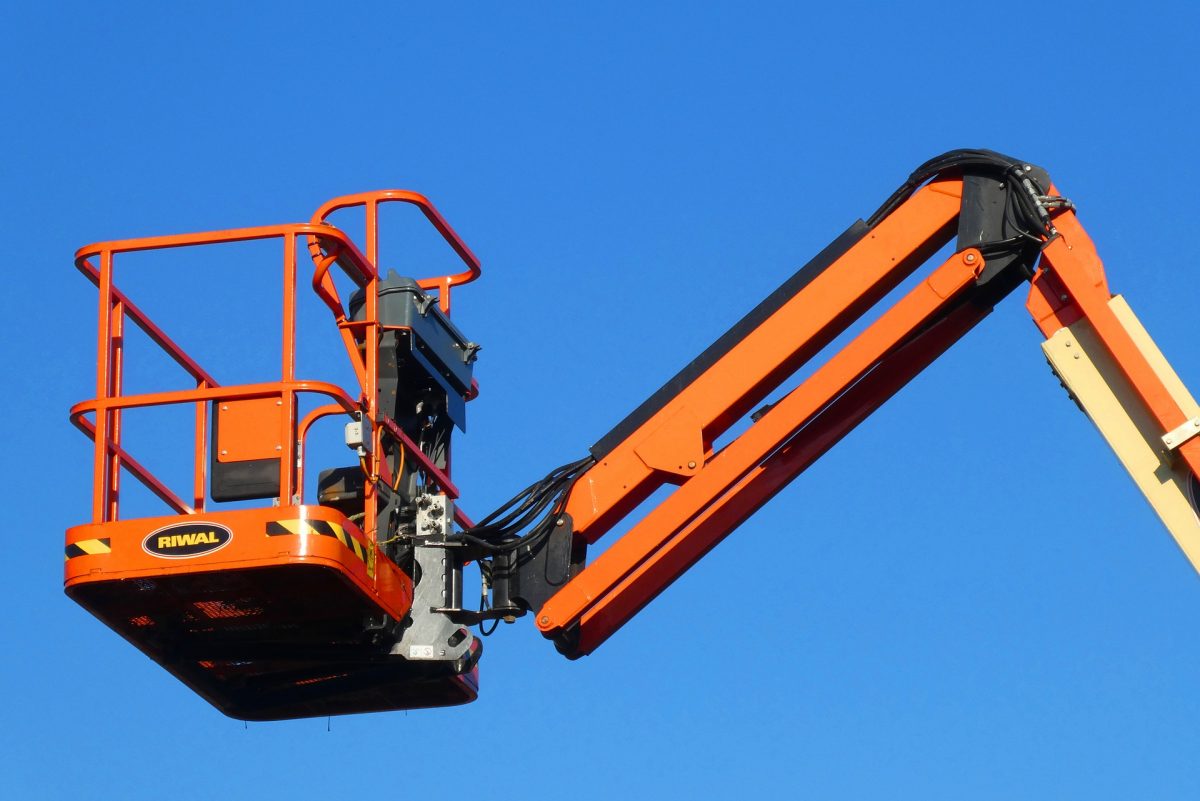

A cherry picker, or boom lift, is a very specific type of van that can help certain trades or businesses complete their work. Unlike more common vans, the design and purpose of these vehicles is pretty specific, so they’re more suited for those who know where, when and how they would be used.
Depending on what you need, there are different sizes of cherry pickers to choose from, with smaller vehicles available – and with smaller platforms and reaches – to larger ones for when you need to reach taller locations. The platform size also varies, but is determined by the size of the vehicle so as not to be over or under balanced.
Cherry picker vehicles aren’t needed by every business, and if it’s something you need, you’ll already be aware of this. Unless you plan to expand your offering and range of jobs, most people will have used cherry pickers before when looking for a replacement.
What Does A Cherry Picker Do?
A cherry picker, essentially, provides a platform that can be raised and lowered to a set height, allowing you – or your staff – to complete jobs at very specific heights. As these jobs vary, a vehicle with a platform at a set height is only useful in very specific uses – even compared to when cherry pickers are a good choice.
Being able to reach a range of heights makes cherry pickers useful no matter what the job or situation may be. Some are transported on a trailer, while larger models are a part of the vehicle itself. Knowing which you need – and how it can work in the environments you operate in, can determine what model is right for your needs.
When Would You Need A Cherry Picker?
Whe you, or your employees, complete jobs at heights not easily accessed, a cherry picker is a great choice to make those jobs easier. The platform on these vehicles can reach heights for a range of jobs, and include barriers, too, to make sure these jobs are completed safely.
These jobs can include cleaning windows on tall buildings, carrying out repairs at heights, constructing scaffolding, mounting cameras for public events, and much more. The different sizes and shapes means there is always a cherry picker for every job and situation, no matter what you need to do.
Whether you own cherry pickers outright or rent them when needed, they can be invaluable in making jobs simpler and quicker to complete, allowing you to do more jobs than without them.
Is A Chassis Cab The Right Choice?
A chassis cab van is the most basic type of van available, consisting of just the driving compartment itself. This might seem like a strange choice, but it does allow more flexibility in what you do with it – and in some cases, you can change what the cab attaches to very quickly to account for different jobs and situations.
Of all the different types of van, the chassis cab is a blank slate. So long as you know what you want to accomplish, and have an idea of how that might be achieved, a chassis cab can help you bring your vision to life and improve your business’s productivity and efficiency.
What Does A Chassis Cab Offer?
While a lot of van types and models offer flexibility and versatility in what they can do, none match the customisation offered by a chassis cab. This is the most barebones of vans, so you can build it into something that is truly specific to your needs.
While this does help you complete more jobs, it is important to think about what happens when the time comes to replace it. If the attachment can’t be disconnected, or is too specific, it can be hard to sell to fund a replacement. This isn’t necessarily a deal breaker, but it is something to consider – especially if you want a new chassis cab. Are the joining points the same, or will work be required to use the existing chassis with the new cab?
When Would A Chassis Cab Work For You?
If you need a vehicle more specific to your needs than a general type of van, a chassis cab could be the way forward. Once you know the kind of vehicle you need to best complete the jobs you have, it can be a better option to work from scratch and create a custom attachment than buying something not quite right.
Whether it’s a box compartment, a trailer, or something else entirely, the chassis cab lets you find the perfect attachment – and being able to change them when needed is another bonus the vehicle owner can take advantage of. This means you can be ready for anything that comes your way, and lets you take on a wider selection of jobs.
Which Type Of Van Is Right For You?
Figuring out what van to choose depends on what you intend to use it for – and what changes you might come across as your business and jobs change in the future. While it’s impossible to predict everything, having a plan of where you expect to be or what you expect to be doing can really help find the right model and size of van – as well as if you need a more specific model.
This means we can’t tell you what type of van to choose, but by looking at what each model and van type offers can help you make this decision. Once you know how to use it, you can look at brands and models that will handle any job you have.
If you’d like to know more about vans, including chassis cabs and cherry pickers, then the team at We Buy Broken Vans can help. Get in touch with us and we’ll help you figure out what type of van would work best for you.

